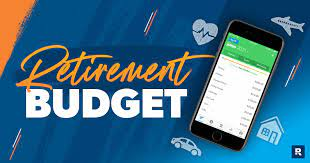While some people cringe at the word ‘budget’, it’s actually a helpful tool that can help you save money and live more comfortably in retirement. Here are some tips for budgeting in retirement to make the process less intimidating.
Start by identifying expenses and estimating how much you will spend each month. Retirement expenses can change from year to year so you’ll need to factor in any fluctuations. Look at past bills and online bank statements to get an idea of how much you’re spending on a regular basis. This will also give you a sense of what expenses will likely increase or decrease once you’re no longer working full-time.

Next, figure out what you’ll spend each month on ‘essential’ expenses like housing, utilities and groceries. Then add up all other expenses that may change in retirement, such as entertainment and dining out. There are handy apps that assist you with this, but it’s also a good idea to go through your spending and eliminate excess purchases to cut down prior to retirement. This way, it won’t seem like such a culture shock when you retire. For example, you might be able to cut your costs by switching providers for some services or by downsizing to a smaller home like a park home, for example. For information on Park Homes for Sale Near me, go to http://www.parkhomelife.com/our-parks/orchard-park-homes-gloucester-gloucestershire
Lastly, estimate what your household income will be in retirement, including your pension, retirement account withdrawals and any other sources of revenue. This is crucial when creating a retirement budget because it will allow you to see how much you’ll have left over for discretionary expenses after covering your essentials. If you end up with more money than you expected, this can be a good thing because it means that you’re on track to reach your financial goals in retirement.

If you’re still a few years out from retirement, it’s helpful to create a budget and start practicing by tracking your expenses with an app or spreadsheet while you’re still working. This will give you a feel for how your retirement budget might work in practice and make it easier to adjust for any lifestyle changes you’re likely to experience in retirement. This will help you avoid the financial trap of living beyond your means once you’re no longer earning a steady wage.
